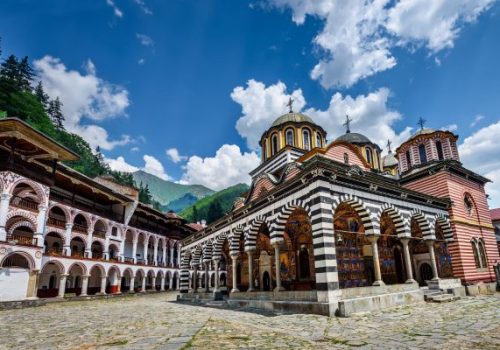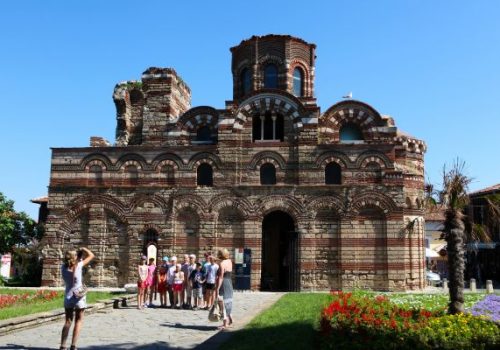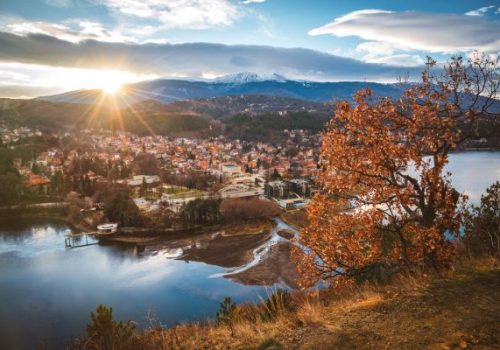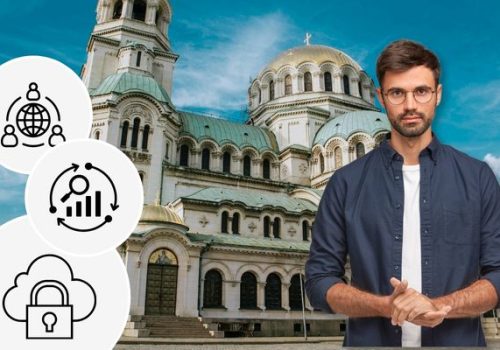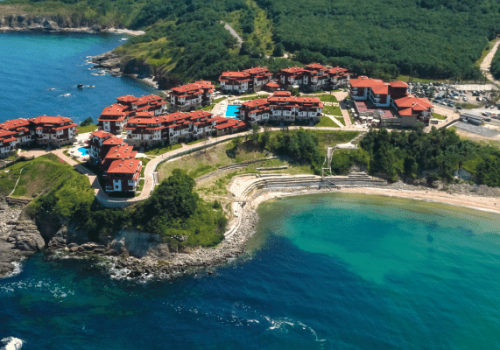Live and work in Sofia
Sofia is the capital and also the most beautiful city in Bulgaria. The city is located in western Bulgaria on the Iskar River. It is a sparkling and hip city with a rich history. In addition, Sofia is spotlessly cheap, lively and you will find many Roman buildings in the centre. You can also safely call Sofia one of the most interesting cities in the Balkan region.
The city is located between three mountain ranges, making it easy to escape the city to enjoy some nature. Due to the city’s convenient location, Sofia is the perfect base for exploring the entire Balkan region. For instance, Sofia is reasonably close to the Black Sea, Istanbul, Athens, Belgrade and Bucharest. Sofia is also a good city for anyone who loves going out and shopping. In short, living and working in Sofia offers numerous advantages. Curious? Then read on quickly and find out what it is like to live and work in Sofia.
Latest jobs in Sofia & Bulgaria
- Adventure jobs, Hotel jobs, Tourism
- Bulgaria, Croatia, Egypt, Greece, Italy, Spain, Turkey
- Customer support
- Bulgaria
- Customer support
- Bulgaria
- Marketing
- Bulgaria
- Customer support
- Bulgaria
Work in Sofia
Working conditions in Sofia
Working conditions in Bulgaria are similar to those in the rest of EU: a full-time working week consists of five 8-hour working days. Employees are entitled to 20 paid holidays a year and Bulgaria has 11 public holidays.
Salaries in Sofia
Because the cost of living in Sofia is quite low compared to many other European cities, salaries are also a lot lower. The average gross income in Sofia is around €1085 per month (2024). The lev (BGN) is considered the most stable currency in Eastern Europe.
Payroll tax in Sofia
In Sofia, you pay a flat income tax rate of 10% on your taxable income. The corporate tax rate in Sofia is also 10%. These low tax rates make Bulgaria an attractive destination for foreign investors and expats.
The work culture in Sofia
The work culture in Sofia is different from what we are used to in the Netherlands or France. For example, hierarchy in the workplace is very important at Bulgarian companies. Employees have little influence on decisions and are therefore less likely to take initiative. Moreover, it is important to always address your manager respectfully.
In addition, Bulgarians do not value deadlines as much and they mainly focus on short-term goals. Bulgarian companies are not afraid to take risks and make mistakes.
In the workplace in Sofia, it is customary to call colleagues by their last name, unless the person indicates that you can call them by their first name, of course. Personal relationships are very important to Bulgarians and generally Bulgarian employers regularly organise an evening out for their employees.
Networking in Sofia
If you are just new to Sofia, it can be nice to connect with other expats and locals. Networking events are a great way to meet many new people in a short time. For a list of upcoming networking events in Sofia, check websites like Eventbrite, MeetUp and Internations. Moreover, Sofia has a large Event Centre called Networking Premium, where you have the chance to meet many new people.
Finding a job in Sofia
Finding a job in Sofia is not difficult if you are fluent in English. In fact, there are many multinationals in Sofia that are regularly looking for customer service employees. Feel free to take a look at our vacancies page for a complete overview of all our vacancies in Sofia and Bulgaria. Do you have questions about Sofia or about working abroad in general? We have answered some frequently asked questions on our home page.
Living in Sofia
Advantages of living and working in Sofia
Sofia lies at the foot of a high mountain called Vitosha where you can hike in summer and enjoy skiing in winter. Sofia is also a compact city. It doesn’t really matter where in the city you live, as the city centre, suburbs and sights are all easily accessible on foot. And if you do want to use public transport, you’ll find that that too is very cheap in Sofia. In short, Sofia is a modern, compact and vibrant city with a nice atmosphere.
Find more information on Bulgaria in general below:
Accommodation in Sofia
Once you start living and working in Sofia, you will find that finding suitable accommodation is not difficult at all. There is currently a lot of construction going on in the city, so the chances of you ending up in a new property are quite high.
The average rent for a 1-bedroom flat in central Sofia is €470. A 1-bedroom flat outside the city centre is slightly cheaper, at around €350. A 2 or 3-bedroom flat in the city centre costs no more than €900. And the average rent for a 2 or 3-bedroom flat outside the city centre is €590. Of course, if you like living with several people, you can always share a 2 or 3-bedroom flat.
We can recommend the following websites for finding accommodation in Sofia:
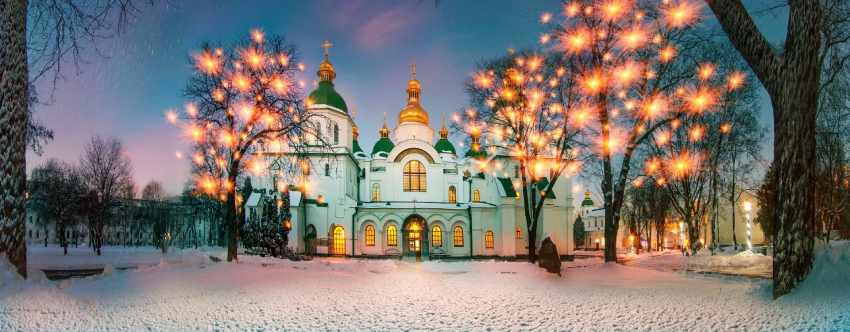
Transport in Sofia
Public transport in Sofia is very fast, cheap and efficient. You can travel on trolleybuses, regular buses, trams and the metro. Did you know that Sofia even has one of the longest tramway networks (a whopping 308 km of tracks) in Europe?
Moreover, taxis in Sofia are also very cheap. You pay around €0.61 per kilometre.
For a single trip on the metro, (trolley) bus or tram in Sofia, you pay around 1.60 BGN, which is €0.82. Tickets for the metro can be bought at ticket machines and ticket counters at metro stations. It is also possible to buy an electronic card with 10 single rides. The cost for this is about BGN 12.00, which is about €6.15. There are also many other types of public transport tickets available. Take a look at Metro Sofia’s official website for an overview of the possibilities.
Eating in Sofia
Sofia offers plenty of options when it comes to eating out. There are plenty of restaurants where you can enjoy traditional Bulgarian dishes, but of course you can also find dishes from other cuisines.
You will find that there is mainly a lot of meat on the menu. A lot of pork in dishes, but also a lot of lamb and beef. Stews and meat dishes from the oven are also very popular in Sofia. A salad is almost always served with dinner.
The restaurants below in Sofia get good reviews:
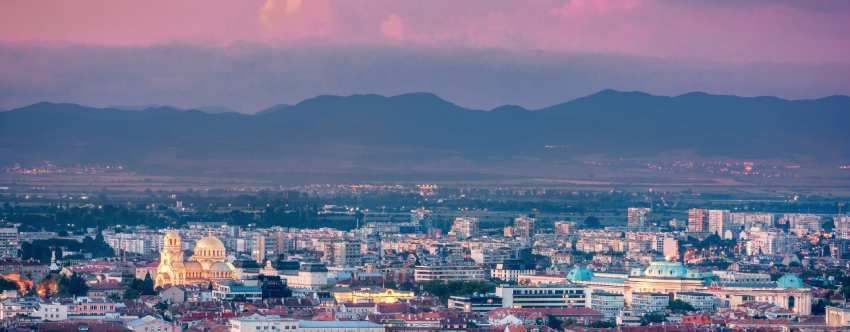
Nightlife in Sofia
Going out in Sofia is one big party! You never have to search long for a cosy place, as there are dozens of discotheques, clubs and bars in the centre of Sofia. Most nightlife venues have no set closing time and are open all night. There are not many rules and at 3am you can still get in just fine. Besides, drinks are enormously cheap and the atmosphere is usually very cosy.
We can definitely recommend the places below:
Account Bar & Diner
Account is a very popular nightclub right in the centre of Sofia. You can enjoy lunch and dinner here during the day and go crazy on the dance floor at night. The place has no real opening and closing hours.
Royal Piano Club
Here you will find a large and atmospheric bar with a dance floor. There is room for more than 300 seated guests. The atmosphere is cosy and relaxed. The music is quieter compared to other clubs so you can hear each other well. This large bar/disco is open 24/7.
Club Terminal 1
This is by far the most famous nightclub in the city. Club Terminal 1 is located in the old part of Sofia. Many different types of parties are organised here and you can enjoy various styles of music: from acoustic live music to Rock & Roll. On weekends, well-known DJs often come to spin.
The cost of living in Sofia
Many people who have the dream of working abroad choose Sofia. The low cost of living is a major reason for this.
For instance, consumer prices in Sofia are as much as 41% lower than in Amsterdam, and renting a flat there is even 75% cheaper than in Amsterdam. Furthermore, shopping is about 33% cheaper than in Amsterdam.
A 3-course dinner for two in a mid-range restaurant costs an average of €80 in Amsterdam, while in Sofia it costs only BGN 70 (€36). For a 0.5-litre beer in a restaurant in Sofia, you pay just 3.50 (€1.80). Moreover, a gym subscription costs on average around 55.70 BGN (€28.47) in Sofia.
Sofia’s landscape and nature
There are plenty of beautiful parks in and around Sofia. Moreover, you will also find two botanical gardens. These botanical gardens can be easily reached by car or taxi.
The highlight, however, remains a visit to Vitosha Mountain. This mountain is immensely popular and easily visible from the city. A walk to the famous viewpoint on Vitosha Mountain is therefore highly recommended.
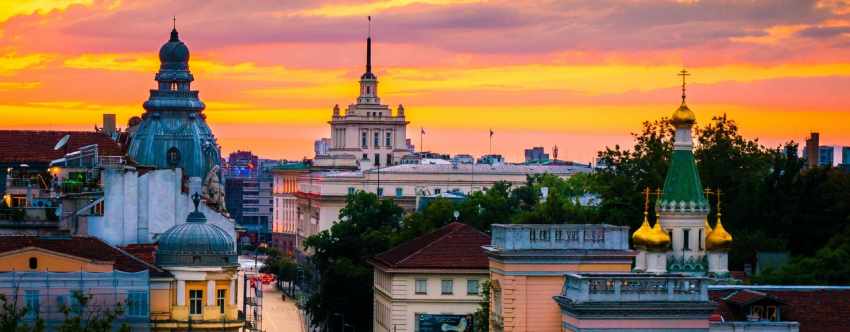
Weather in Sofia
There is a maritime climate in Sofia. This means it can get very sunny and warm during the summer months. Think maximum temperatures of 30+ degrees. During the winter months, it usually feels cold in Sofia and it also regularly snows. Because Sofia is surrounded by mountains and therefore less windy, residents may experience fog and smog during the winter months.
What to do in Sofia, Bulgaria
Vitosha Boulevard
This is Sofia’s main shopping street and you can shop really well here! You can find many big fashion brands here. There are also many chic shops, good restaurants and cosy bars. You can also admire plenty of beautiful stately buildings here, such as the National Palace of Culture and the house of the famous Bulgarian poet Peyo Yavorov.
National History Museum
If you are interested in Bulgarian history, it is a good idea to visit the National History Museum. You will find as many as 650,000 objects here, including many archaeological findings, giving you a good idea of the country. There are also costumes and weapons on display.
National Art Gallery
As many as 50,000 pieces of art can be found in this extraordinary former palace of Bulgaria. This art gallery in Sofia is abbreviated to SAG Sofia Art Gallery. In addition to centuries-old paintings, sculptures and drawings, contemporary and photographic art can also be found.
Eagles Bridge
The Eagles Bridge (Orlov in Bulgarian) gives you access to downtown Sofia. Thanks to its location, the bridge is always busy.
Alexander Nevski Cathedral
The Orthodox Alexander Nevski Cathedral should definitely not be missed during your stay in Sofia. The imposing exterior of this cathedral is very impressive. Construction started in the year 1882. At night, the Alexander Nevski Cathedral is beautifully illuminated.
Curious about what else to see and experience in Sofia? Then read this blog with the top 5 sights in Sofia.
Healthcare in Sofia
Everyone working in Bulgaria, including expats, must pay health insurance premiums and register with a doctor of their choice. The national health service is accessible to everyone living in Bulgaria and is run by regional health centres. Although doctors and nurses in Bulgaria are highly trained, medical care in Bulgaria is not of the same high quality you are used to in the western EU countries.
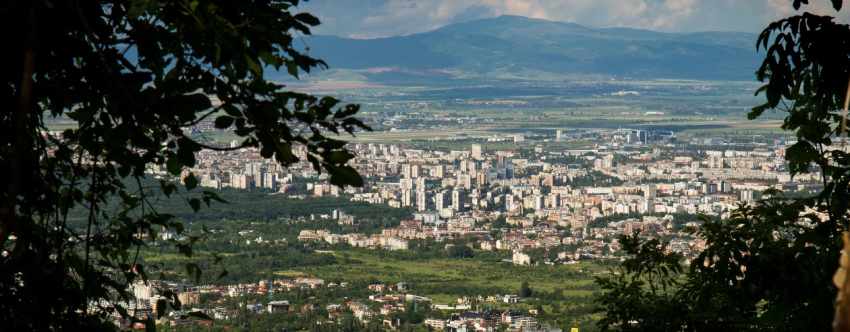
Visa and travel insurance Sofia
As a citizen of an EU country, you do not need a visa during your first 3 months in Sofia. Are you going to live and work in Bulgaria for more than 3 months ? Then you need to register with your local migration office in Sofia. Make sure you bring a completed application form, a valid identity document, a copy of your employment contract and your rental/purchase contract. You can find the application form here.
Opening a bank account in Sofia
If you are going to work abroad, it is always wise to open a foreign account. That way, your employer can easily deposit your salary and you don’t have to worry about the exchange rate.
Fortunately, opening a bank account in Sofia is not difficult. There are plenty of national and international banks in Sofia to choose from. Think for instance of TC Ziraatbank, Bulgarian National Bank, ING Bank and Allianz Bank.
To open a bank account in Sofia, you usually need to be able to show a valid ID and a rental/purchase contract.
Is Sofia safe?
Sofia has become a lot safer in recent years. Corruption in Bulgaria has also decreased significantly. However, always watch your belongings, especially in extra crowded, touristy places in Sofia.


